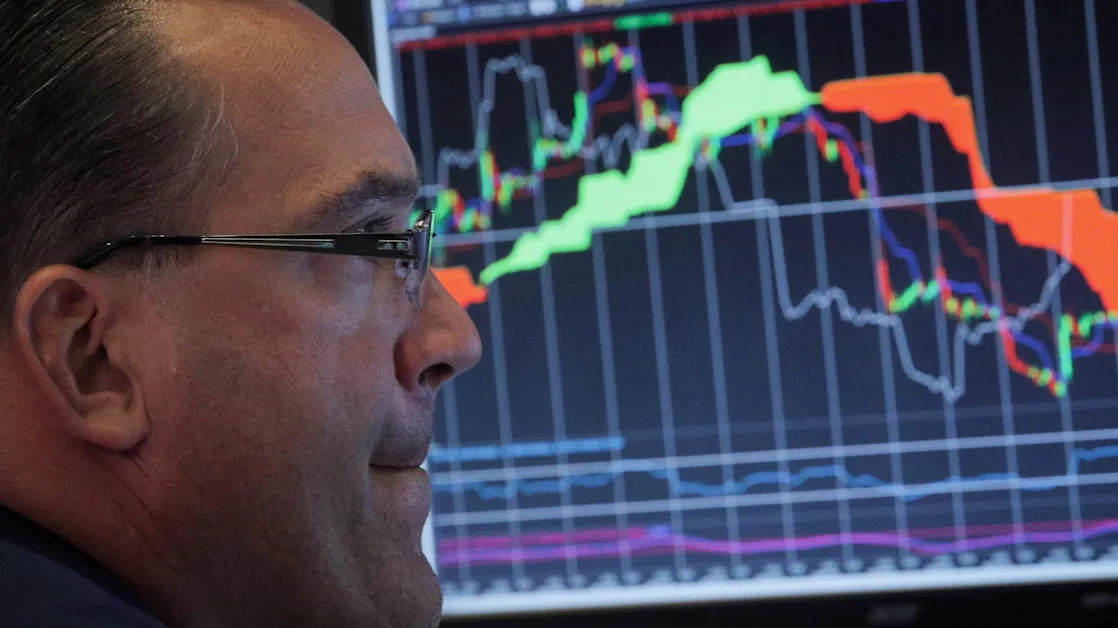(Bloomberg) -- A week that started off with a $6.4 trillion global stock rout and a broad rally in bonds ended relatively quietly, calming from historic volatility triggered in part by the prior week’s disappointing US jobs report.
Equities recovered and traders pared back massive bets on a fast and furious loosening of monetary policy, underscoring the jitters in the market as investors try to calibrate the timing and pace of interest-rate cuts. The next test will come with inflation data this coming week.
Here are some of the charts that appeared on Bloomberg this week on the latest developments in the global economy, markets and geopolitics:
World
On the surface it was a stock shock for the ages, a once-in-a-generation spike in turbulence that reverberated through global markets. But what if Monday’s extreme volatility event wasn’t quite what it seemed? That’s the theory now bouncing around on Wall Street, after a frantic week in which the Cboe Volatility Index staged its biggest intraday jump on record.
The yield on benchmark US 10-year notes has returned to levels seen before last week’s US labor-market report, wiping out most of the steep declines from early this week. After pricing aggressive and super-sized interest-rate cuts from the Fed, traders have also pared bets to about 100 basis points of easing for the year.
Australia’s central bank kept interest rates at a 12-year high and all-but ruled out a rate cut in the next six months, splitting with global counterparts as it waits for inflation to abate. India and Serbia held rates steady as well. Kenya surprised with its first rate cut since 2020, while Uganda, Romania, Mexico and Peru also lowered rates.
Asia
Bank of Japan Deputy Governor Shinichi Uchida sent a strong dovish signal in the wake of historic financial market volatility in Japan by pledging to refrain from hiking interest rates when the markets are unstable. The yen weakened by more than 2% against the dollar, bond futures spiked higher and stocks rebounded immediately after his comments, which were the first public remarks by a BOJ board member since the bank raised rates on July 31.
China announced a sweeping plan to boost consumption by improving the supply of services, seeking to bolster a bright spot in domestic demand as the manufacturing sector’s momentum cools. The measures are followed by the release of a Caixin survey showing services expanded for 19th straight months in July.
Japanese workers’ real wages rose for the first time in more than two years, brightening the prospects for a recovery in consumption and the emergence of a positive growth cycle long sought by the Bank of Japan.
US
US consumers continued to struggle with their debt payments despite a stabilization in overall delinquency. The share of auto loan balances that became at least 30 days delinquent was the highest since 2010. The share of credit card debt that was newly delinquent rose to 9.05%, the most in about 12 years. Meanwhile, loan balances on home equity lines of credit increased.
The Biden administration is nearly finished divvying up $39 billion in grants under the Chips and Science Act, the landmark bipartisan legislation aimed at revitalizing the domestic semiconductor industry. The bigger test still lies ahead.
The great post-pandemic boom in consumer travel is officially over. With the US economy showing signs of slowing and the financial cushions many accumulated during the Covid-19 pandemic wearing thin, travelers are reining in their post-lockdown wanderlust and tightening their belts.
Emerging Markets
Mexico’s central bank cut its benchmark interest rate for the first time since March and said it would consider additional reductions as policymakers look past the recent inflation spike to focus on threats to economic growth. Banxico, as the bank is known, also said the balance of risks for the trajectory of inflation within the forecast horizon remains biased to the upside, but expects shock effects on headline inflation to dissipate over the next quarters.
Brazil’s annual inflation accelerated to the upper limit of the target range, dealing another blow to the central bank as it works to contain price pressures spreading throughout Latin America’s biggest economy.
Russia’s overheating economy fueled by massive Kremlin spending on its invasion of Ukraine may about to cool sharply amid mounting constraints on key sectors that have bolstered growth until now.
Europe
French unemployment unexpectedly declined in the second quarter, a sign that President Emmanuel Macron’s unpopular labor-market reforms are bringing some results.
German factory orders rose in June — snapping a five-month slump for Europe’s largest economy. Driving factors included the automotive industry, while sectors manufacturing fabricated metal products and other transport equipment also contributed. Domestic orders were particularly strong.
--With assistance from Maya Averbuch, Toru Fujioka, Tony Halpin, Mackenzie Hawkins, Lucille Liu, Yujing Liu, Natalie Lung, Sydney Maki, Jonnelle Marte, Marilen Martin, Yoshiaki Nohara, Michael O'Boyle, Anthony Palazzo, James Regan, Andrew Rosati, Augusta Saraiva, Zoe Schneeweiss, Alex Tanzi, Denitsa Tsekova, Alex Vasquez, Lu Wang and Erica Yokoyama.





